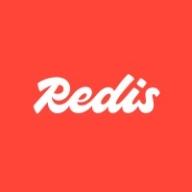

Find out in this report how the two Database as a Service (DBaaS) solutions compare in terms of features, pricing, service and support, easy of deployment, and ROI.
| Product | Market Share (%) |
|---|---|
| Google Cloud Spanner | 7.8% |
| Amazon RDS | 12.6% |
| MongoDB Atlas | 12.1% |
| Other | 67.5% |
| Product | Market Share (%) |
|---|---|
| Redis | 22.7% |
| Amazon ElastiCache | 17.8% |
| Google Cloud Memorystore | 14.2% |
| Other | 45.3% |
| Company Size | Count |
|---|---|
| Small Business | 11 |
| Midsize Enterprise | 3 |
| Large Enterprise | 9 |
Cloud Spanner is the first and only relational database service that is both strongly consistent and horizontally scalable. With Cloud Spanner you enjoy all the traditional benefits of a relational database: ACID transactions, relational schemas (and schema changes without downtime), SQL queries, high performance, and high availability. But unlike any other relational database service, Cloud Spanner scales horizontally, to hundreds or thousands of servers, so it can handle the highest of transactional workloads. With automatic scaling, synchronous data replication, and node redundancy, Cloud Spanner delivers up to 99.999% (five 9s) of availability for your mission critical applications. In fact, Google’s internal Spanner service has been handling millions of queries per second from many Google services for years.
Redis offers high-speed, in-memory storage, renowned for real-time performance. It supports quick data retrieval and is used commonly in applications like analytics and gaming.
Renowned for real-time performance, Redis delivers high-speed in-memory storage, making it a favorite for applications needing quick data retrieval. Its diverse data structures and caching capabilities support a broad array of use cases, including analytics and gaming. Redis ensures robust scalability with master-slave replication and clustering, while its publish/subscribe pattern renders it reliable for event-driven applications. The solution integrates smoothly with existing systems, minimizing performance tuning needs. Although documentation on scalability and security could be improved, Redis remains cost-effective and stable, commonly utilized in cloud environments. Enhancing integration with cloud services like AWS and Google Cloud and refining GUI may improve usability.
What are the key features of Redis?Redis finds application across industries for tasks like caching to improve application performance and speed, minimizing database load. It enables real-time processing for session storage, push notifications, and analytics. As a messaging platform, Redis handles high traffic and supports replication and clustering for cross-platform scalability.
We monitor all Database as a Service (DBaaS) reviews to prevent fraudulent reviews and keep review quality high. We do not post reviews by company employees or direct competitors. We validate each review for authenticity via cross-reference with LinkedIn, and personal follow-up with the reviewer when necessary.